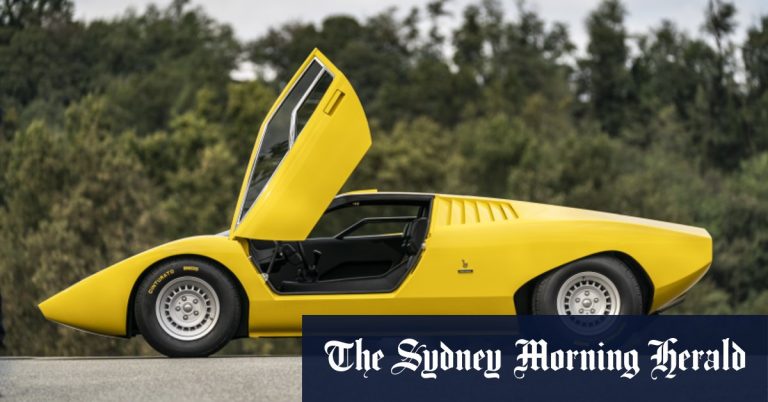But convincing the locals has been a bumpy ride. Bologna is the capital of the region that is home to the makers of some of the fastest and most glamorous cars in the world, including Ferrari, Lamborghini and Pagani.
There were protests, in the streets and on social media (memes and all), and a petition to hold a referendum on the new speed limit collected just over 53,000 signatures.
The petition was started by Gwendalina Forini, a student at the University of Bologna, who was concerned that her daily commute of 40 kilometers into the city would increase dramatically. She said the new limit is “difficult to maintain” and will ultimately deter people from visiting Bologna because the risk of getting a ticket is too high.
“The city is at risk of loss,” she said.
The discontent was a windfall for the city's center-right opposition, which jumped on the protests ahead of June's EU elections and on Monday called for a referendum on the cap.
Opposition criticism was amplified by Italian Transport Minister Matteo Salvini, leader of the hard-right League party, who described Bologna's borders as “meaningless”. Last week, Salvini signed a directive challenging the city's right to impose a blanket speed limit of 30 kilometers per hour, arguing, among other things, that the restrictions should be determined on a street-by-street basis. Legal experts have been discussing the weight the directive could have on the city's decisions, and the dispute could continue in the courts.
Bologna City Council responded to the directive by indicating in a statement that the speed limits are in line with current national legislation. “Our priority is road safety and people’s quality of life,” the statement said.

Bologna officials are looking to prioritize pedestrians and cyclists over cars.credit: Stock struggle
Lepore noted during the interview that the new limit affects only 70 percent of the city, with the remaining roads retaining 50 km/h or 70 km/h limits. He said the city is open to “corrections” on the speed limit, but not before a period of monitoring.
During the first two weeks, only 25 speeding tickets were issued, according to the City Council. At this point, “we're more focused on reporting rather than imposing fines,” Lepore said.
In 2021, Olbia, in Sardinia, became the first Italian city to set a 30 km/h limit. There, too, the initial reactions were harsh, recalls Mayor Settimo Nezzi.
“But it is appropriate for the mayor to think about the quality of life of his citizens,” Nizi said. He added that officials worked for months alongside residents to extol the benefits of a more walkable and bike-friendly city “to get them used to this new lifestyle.”
Nizzi noted that walking is “much better for you”, and now people in Olbia are “much happier”.
download
There are signs that Bologna's new border is already having an impact. According to the city, traffic accidents decreased by 21 percent in the first two weeks after the new limit went into effect, compared to the same period last year, which included one fatality. None of the accidents this year were fatal, according to a city statement issued last week.
Lepore said he is confident that the positive results of his measures will appear soon.
“It won't take long for people to understand that this was the right choice,” he said.
This article originally appeared on New York times.

